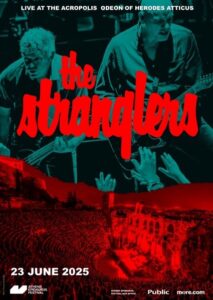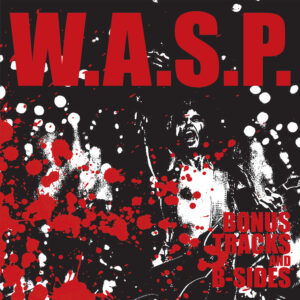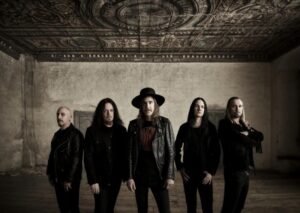Early Beatles on the BBC, Bantering and Bluesy
In the summer of 1971, one of the first Beatles bootlegs turned up, packaged in a white sleeve with “The Beatles — Yellow Matter Custard — Previously Unreleased Studio Material” rubber-stamped across it. It offered an odd lineup of tracks (performances of Ray Charles’s “I Got a Woman”; Buddy Holly’s “Crying, Waiting, Hoping”; Carl Perkins’s “Sure to Fall (in Love With You)”; Arthur Alexander’s “Shot of Rhythm and Blues”), 14 in all, in decent, if slightly tinny, quality.
Beatles scholarship was in its infancy then, and collectors had no idea what these tracks were. When a fan played the disc for John Lennon in 1972, he said it was the Beatles’ failed Decca audition from a decade earlier. He was wrong. By the late 1970s, the recordings’ provenance was established: The Beatles recorded these songs in 1963 for a 15-week BBC radio series, “Pop Go the Beatles.”
Few American fans knew of the half-hour show, or knew that the Beatles performed regularly for the BBC from 1962 to 1965, and British fans rarely mentioned it. On both sides of the Atlantic, the Beatles narrative focused instead on the group’s amazing musical development, as captured in its EMI studio recordings.
But the BBC was crucial to the Beatles’ career. It presented them on its airwaves months before they had a record deal, and when it offered them “Pop Go the Beatles,” the group had released only three singles and one LP.
A new release, “On Air — Live at the BBC, Vol. 2,” and a reissue of its 1994 predecessor, “Live at the BBC” (both Apple/Universal), are a reminder of how important this material is to understanding what made the Beatles tick.
And a lavishly packaged, deeply researched new book, “The Beatles: The BBC Archives 1962 to 1970” (Harper Design), by Kevin Howlett — a former BBC producer who has assembled several shows about the Beatles’ BBC work, and is an executive producer of the CDs — clarifies the importance of the relationship to both sides.
Consider that the Beatles’ EMI studio output, from 1962 to 1970, amounted to 212 songs (not counting variant versions or post-breakup releases). At the BBC, they recorded 88 songs, most in multiple performances, for a total of about 280 tracks. Among the 88 are 36 songs, nearly three albums’ worth, that the Beatles never recorded for EMI.
That’s a significant chunk of repertory. Most are covers of American records, and though that may seem a drawback for a band distinguished by its songwriting, they tell us what most influenced the Beatles: namely, Motown hits, Chuck Berry, rockabilly (mostly Carl Perkins and Elvis Presley) and East Coast girl groups.
You know that from the covers the Beatles included on their early albums, of course, but the BBC recordings add depth to the playlist.
“Live at the BBC” includes 30 of the non-EMI 36. “On Air” adds two more — a rocked-up version of Stephen Foster’s “Beautiful Dreamer” and Mr. Berry’s “I’m Talking About You” — and a third, Perkins’s “Lend Me Your Comb,” that was included on “The Beatles Anthology 1.”
“On Air” also offers hits that the first volume ignored (“She Loves You” and “I Want to Hold Your Hand,” among them) and alternative performances of tracks on the earlier set, some superior, all different in illuminating ways.
The accounts of Little Richard’s “Lucille” on the two sets were recorded only two weeks apart, but show Paul McCartney taking different approaches to the screaming lead vocal. Lennon sang the version of Perkins’s “Honey Don’t” on “Live at the BBC.” Ringo Starr sings it on the new set.
Because the BBC performances were essentially live in the studio, they are closer to the Beatles’ live performances than to the carefully tweaked and polished EMI versions. Among the highlights of “On Air” are performances of “Anna,” “Misery,” “You Can’t Do That,” “Words of Love” and “Roll Over Beethoven” that are more sharply etched and more electrifying than the studio recordings.
And there are striking differences in the arrangements: “And I Love Her” and “Till There Was You,” gently acoustic on LP, are electric on “On Air.”
These performances are historic in other ways, too. At the Beatles’ first BBC taping, on March 7, 1962 (Pete Best was still their drummer), they played a cover of the Marvelettes’ 1961 hit, “Please Mr. Postman.”
That performance was the first time any song on the Tamla-Motown label was played on the BBC. Oddly, nothing from that first show — which also includes a cover of Roy Orbison’s “Dream Baby,” one of the three still unissued non-EMI songs — is included on either of the Apple sets. (The show has been available on bootlegs since the 1980s.)
To its credit, Apple has revamped “Live at the BBC.” All the tracks were freshly transferred, and a few have been replaced with recently discovered, upgraded sources, and a few minor extras have been added. The annoying cross-fading between tracks has been removed, as has the original’s heavy-handed noise reduction.
Alas, Apple has kept the set’s nonchronological running order, as if this were an original Beatles album rather than a compilation.
“On Air” is an enjoyable extension of the franchise. Like “Live at the BBC,” it draws heavily on bootlegs — the BBC, astonishingly, recorded over its early 1960s tapes, so bootlegs are Apple’s main sources, as well as recordings kept by BBC outposts around the world and master tapes taken home by producers — but it presents the music chronologically.
The compilation also includes plenty of the between-songs banter, which, given the Beatles’ personalities, is amusing enough to bear repeated listening.
But these sets merely scrape the surface. The most comprehensive bootleg compilation, “Unsurpassed Broadcasts” (2012), runs to 12 CDs, and, like most bootlegs today, it is an altruistic project — assembled by obsessive collectors, with sound-editing skills, who sequenced it chronologically, provided artwork and notes, and then offered it free on the Internet, entirely because Apple hasn’t done this itself.
At the rate Apple is working, with 19 years between two-disc installments (despite the first set’s sales of five million copies), it will take 80 more years for all the tracks be released. Apple should rethink that. A complete, chronological edition that would put this extraordinary body of work into the official catalog is long overdue.
I recently asked Mr. Howlett whether such a project was being considered. He said it was not: Apple and Universal, he explained, want to appeal to the casual listener, not the specialist.
Could they be mistaking the Beatles for some obscure cult band?
Source: The New York Times



